Chinese liberals cheer for Trump as communists fret
It has China watchers baffled, even appalled, but a sizeable number in the communist nation’s pro-democracy movement hail US Republican candidate Donald Trump as a vehicle for change.
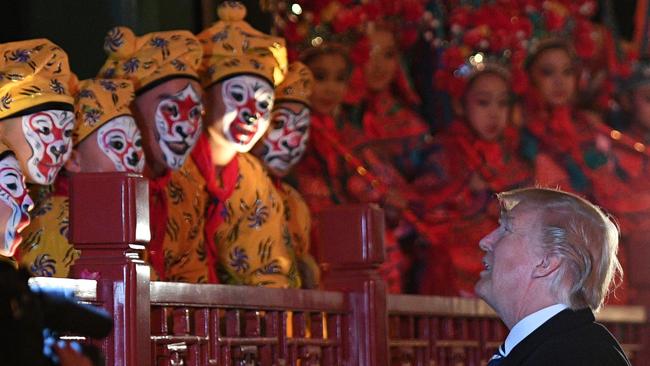
Days before the US presidential election, Donald Trump’s Chinese fanbase is in rude health – in China and in Chinese diaspora communities from Sydney to New York.
Many in China support the former president ironically, dubbing him “Comrade Jianguo” – Comrade Build-Country. They say “Comrade Trump”’s first four years helped to “Make China great again”, arguing that the property billionaire’s erratic leadership hastened America’s decline.
Another four years of President Trump, they declare, could help China in its quest to overtake America as the most powerful nation on earth.
But there is another, sizeable group in China whose support for Trump is sincere – even righteous. They are concentrated in China’s pro-democracy crowd, a group often called Chinese “liberals”.
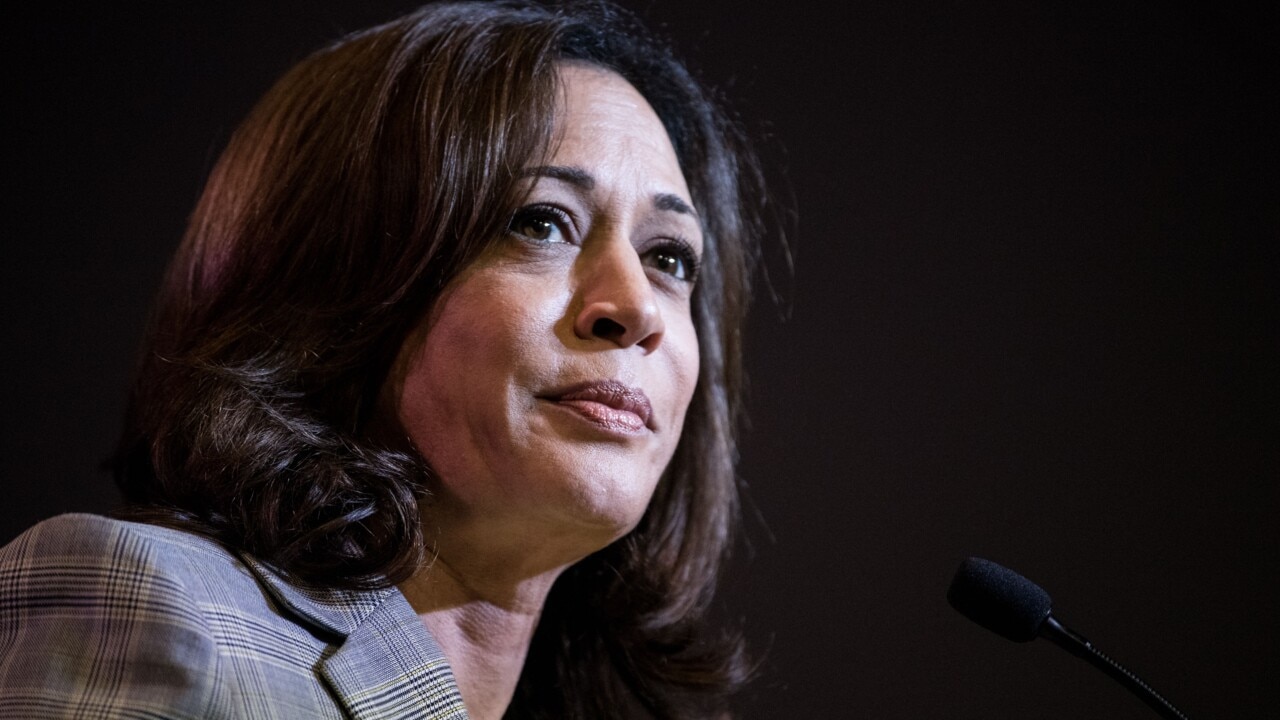
These Chinese Trump fans speak of the Republican candidate in sweeping historical terms.
“It’s quite widely held by people in the pro-democracy movement,” Feng Chongyi, an expert on Chinese politics at Sydney’s University of Technology tells The Weekend Australian.
These Chinese liberals dismiss Trump’s Democratic rival, Vice President Kamala Harris, as a distillation of the social sickness that they believe has already enfeebled a once mighty Europe and now threatens America.
They cast next week’s election as one of world alternating proportions – but in a way diametrically opposed to the consensus view among many of their “liberal” peers in Australia, Europe or America.
“Will Western civilisation survive or decay? Given Europe has lost this cultural or intellectual civil war, if Trump and his Republican Party can turn this situation around, I would compare him to Abraham Lincoln,” one influential Beijing-based Chinese liberal tells The Weekend Australian in an interview in Beijing.
I was surprised by how popular Trump was among many in China’s pro-democracy crowd when I arrived in Beijing for my first posting there for The Australian in 2020.
Four years later, now three months after reopening The Australian’s bureau in Beijing, it is clear that, despite his bumbling response to the spread of Covid, his election loss in November 2020 and his role in the infamous riots of January 6, Trump’s Chinese fan base remains intact. It may even have grown.
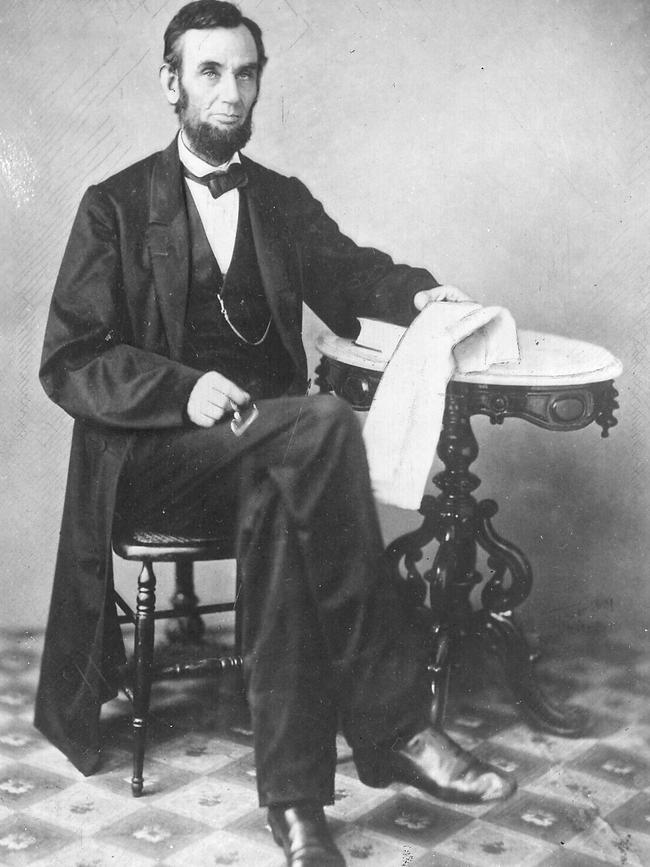
Many China watchers are baffled – even appalled – by the phenomenon. One Chinese liberal in Beijing told The Weekend Australian that a columnist from one of America’s most respected mastheads ended up shouting at him after he revealed his support for Trump.
They had previously had many sympathetic conversations about the pro-democracy movement in China, but that shared history evidently wasn’t enough to overcome their different views on America’s 45th president.
Pro-Trump views are passionately held by many involved in China’s 1989 pro-democracy protests, the ones that ended with the bloodshed of the Tiananmen massacre and halted almost two decades of relative political liberalisation in the country.
‘Every dictator, big or small, has a fear of Trump’
The voices of its participants have been all but expunged from public life in China. But in the country’s private spaces – and in Chinese diaspora communities around the world, from America to Australia – their hopes of a different China can be heard.
Many see Trump as a vehicle for change. They credit him in his first term for bringing about a watershed in America’s relations with China.
“Trump was the one who actually moved away from engagement to confrontation or competition, whatever you want to call it,” Professor Feng tells The Weekend Australian.
Although he adds, Trump’s lack of interest in democracy and human rights make him more of a flawed saviour than some of his most righteous supporters claim. “It’s a bit more complicated,” Professor Feng says.
A respected Chinese liberal the Weekend Australian interviewed in a discreet location in Beijing is in total agreement on both Trump’s flaws and his historical significance. To allow that individual to speak freely on a topic that is extremely politically sensitive, The Weekend Australian will refer to him by a pseudonym, Mr Zhu.
“I’m not in favour of Trump as a person – he has too many flaws. I am in favour of his policies.”
He sees great possibilities in Trump’s unorthodox approach to international relations, including with the Communist Party leadership in Beijing.
“Every dictator, big or small, has a fear of Trump,” Mr Zhu tells The Weekend Australian. “They fear his unpredictability. Unpredictability is horrifying for dictators.”
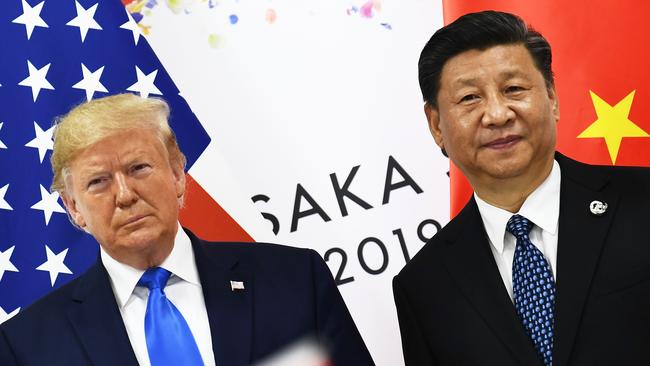
Lowy Institute senior fellow Richard McGregor has encountered this phenomenon, which runs counter to commonplace talk in the US, Europe and pockets of Australia about Beijing hoping for a Trump victory.
“In China, to be sure, there is not a single view about the US election, even as the leadership anxiously awaits the outcome. As to what Xi Jinping himself thinks, one can only speculate,” McGregor has observed.
“But Chinese officials and scholars, in private conversations over many months, are exceptionally wary of a Trump victory.”
Conversations between The Weekend Australian and Chinese officials confirm the point. Less than a week from the election, there is a palpable unease in governing circles about a return to Trump.
The cause of their anxiety is the very reason many Chinese liberals are cheering him on.
‘He is legendary … I’d vote for Trump’
America and its politics are an obsession in China, one that seems to have only grown as the space for Chinese to discuss their own politics has shrunk and shrunk.
State media frames nearly every topic in terms of a restless “struggle” with America – from how China’s Olympic athletes did in the Olympics in Paris (they tied for gold, but maddeningly for Chinese propagandists the US got slightly more silver and bronze) to what kind of fast food people in China are eating (American chains or a new wave of Chinese alternatives) to how Beijing’s space program is advancing (troublingly well, according to NASA’s director).
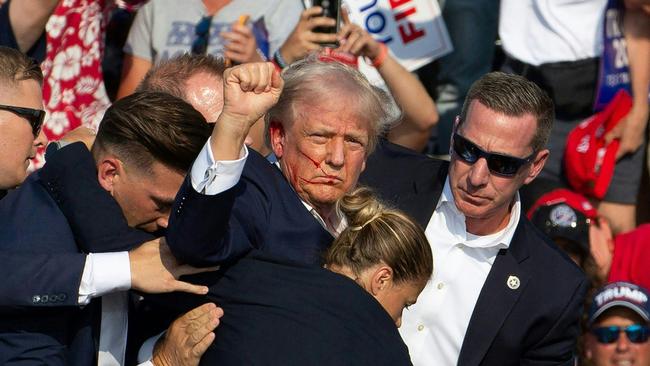
However, China’s Trump obsession goes beyond that. Many just find him so much more interesting than other international leaders or China’s bland, sloganeering, one-party politics. They post as much on Chinese social media.
“I love how confident and unruly Trump is. He is legendary,” says one.
Manya Koetse, who runs What’s On Weibo, a website that follows trends on the popular Chinese social media site, has observed a “blend of mockery and affection” for Trump in China.
Koestse notes Trump is often referred to as “Comrade Jianguo” (Comrade Build-Country). They praise “Comrade Trump” for “Making China great again”, saying he has hastened America’s decline and sped up China’s rise.
But there are clearly many Trump fans too, as was evident after his attempted assassinated in July.
“Just based on his quick reaction and how quickly he crouched, I’d vote Trump,” said one the top posts on Weibo in the hours afterwards.
Those who argue that Beijing would prefer Trump point to his anti-talent for alliance management. They cite comments Trump has made on Ukraine and Taiwan as proof. For example, in an interview with Bloomberg he said that “Taiwan should pay us for defence”.
But in the view of Mr Zhu that’s just a statement of the obvious. “Isn’t it true that America is protecting Taiwan? Is it incorrect that they pay a bit?”
Rather than fulminate about Trump, his contempt is focused on what he sees as Europe’s free-riding on Washington’s military budget. “Everyone wants something from America’s rice bowl,” he says.
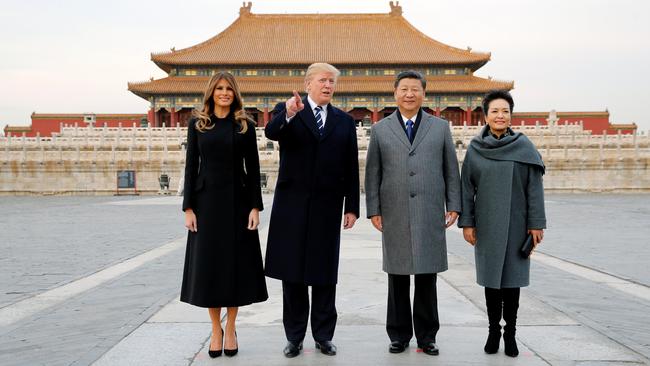
‘We have traditional family values like Trump’
A widespread public view in China’s official circles is that there is no good choice in this American presidential election.
“Trump and Kamala Harris are two bowls of poison for Beijing,” said Zhao Minghao, a professor of the Institute of International Studies and Centre for American Studies at Fudan University. “Both see China as a competitor or even an adversary.”
It’s a view that has been endorsed by the Global Times and other Chinese government mouthpieces. “This sentiment underscores a profound disillusionment of Chinese scholars with the current trajectory of bilateral relations, suggesting that if the choice between the two candidates is akin to selecting the lesser of two evils, there is no point in making a choice,” the Global Times opined.
A Chinese official told The Weekend Australian exactly the same in the fortnight before the election.
Mr Zhou says that view, whether knowingly or not, gets things completely wrong.
“There is a myth that’s very popular in China that there’s almost no difference between the two parties in America, the Democrats and Republicans,” he tells The Weekend Australian.
Near the top of his list of favoured policies is Trump’s opposition to “identity politics”.
Opposition to identity politics is widespread in China and is a rare point of agreement among many defenders of the Communist Party and champions of democratic reforms. It is also commonplace among Chinese Australians, and a reason Peter Dutton could attract many Chinese Australian voters who abandoned the Coalition at the last election.
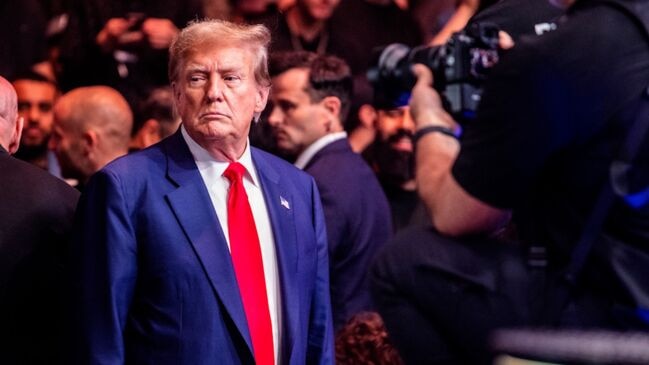
“We have traditional family values like Trump. We liked the sound of Trump’s position on law and order and his intention to be tough on crime and supportive of the police. We also agree with his views on other issues, such as gender transition and homosexuality,” a pro-democracy leader of New York’s Chinese American community recently told UTS’s Australia-China Relations Institute deputy director Wanning Sun.
Many Chinese liberals in Beijing agree.
In Mr Zhoul’s telling, the Democratic candidate is almost a caricature of the “woke” politics that he believes threatens America and the entire Western world.
“Identity politics are similar to the Marxist ‘class struggle’. They deny what has been achieved in the modern era,” he tells The Weekend Australian.
“It is very similar to what happened in China in the 1960s – very similar to what happened in the Cultural Revolution. Beating down everything, beating down the ‘old’. Attacking family, rule of law, liberty, freedom.”
He even worries that a Harris victory would snuff out his escape plan if things get even worse for China’s “liberals”.
“If the Republicans are governing at least there is a place we can flee to,” he says. “Trump might be a thug, but the world needs such a thug to fight the other thugs.”







To join the conversation, please log in. Don't have an account? Register
Join the conversation, you are commenting as Logout